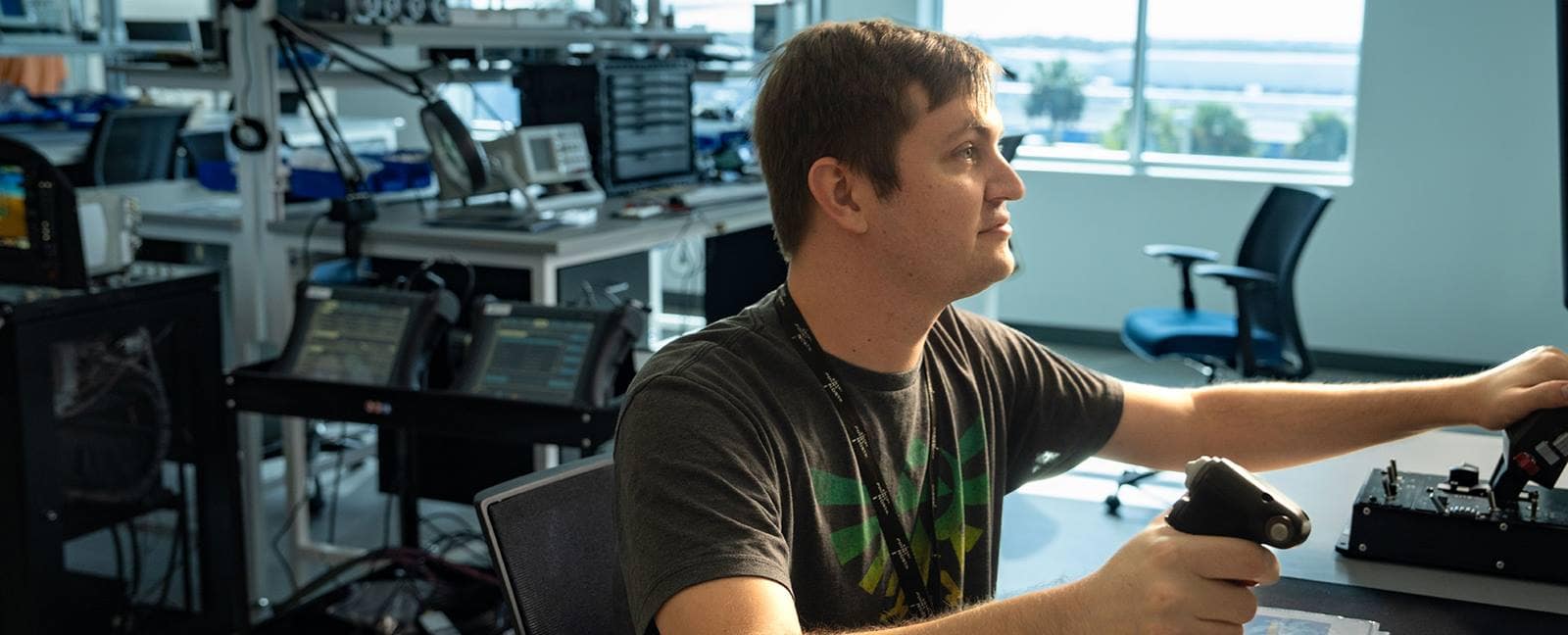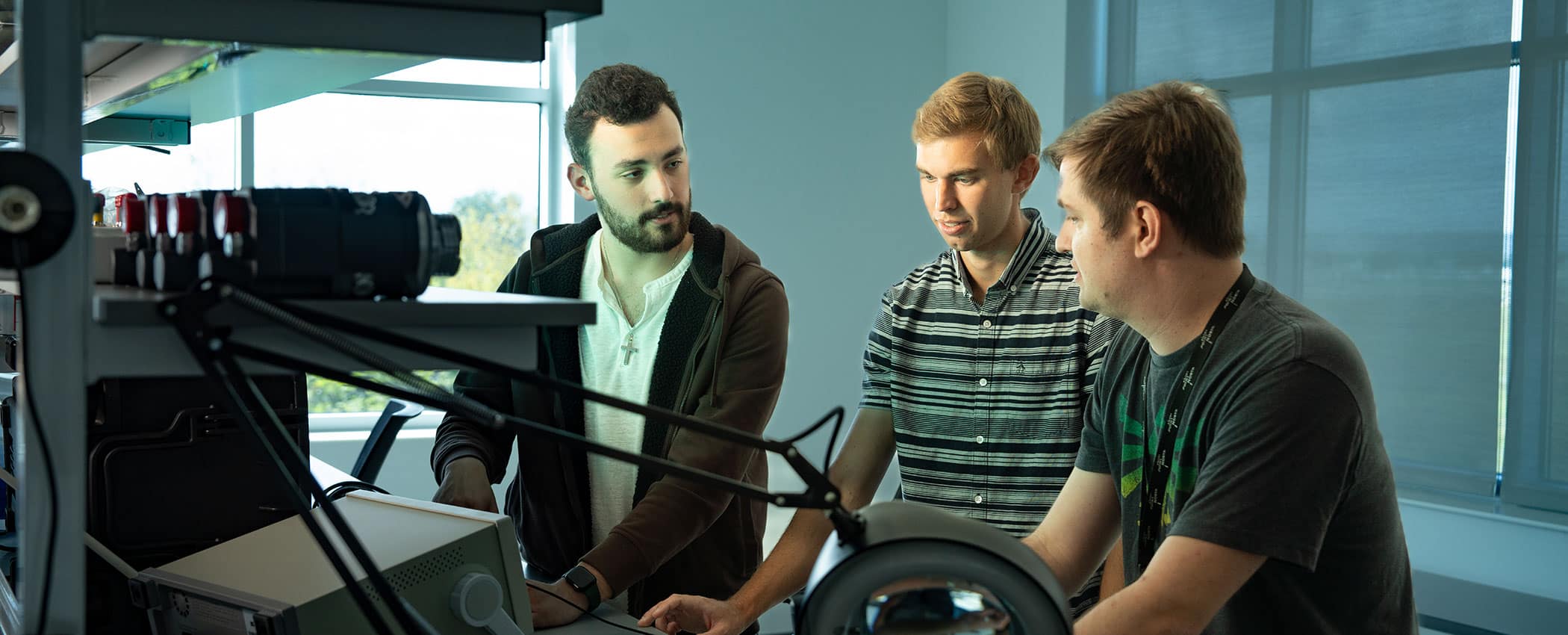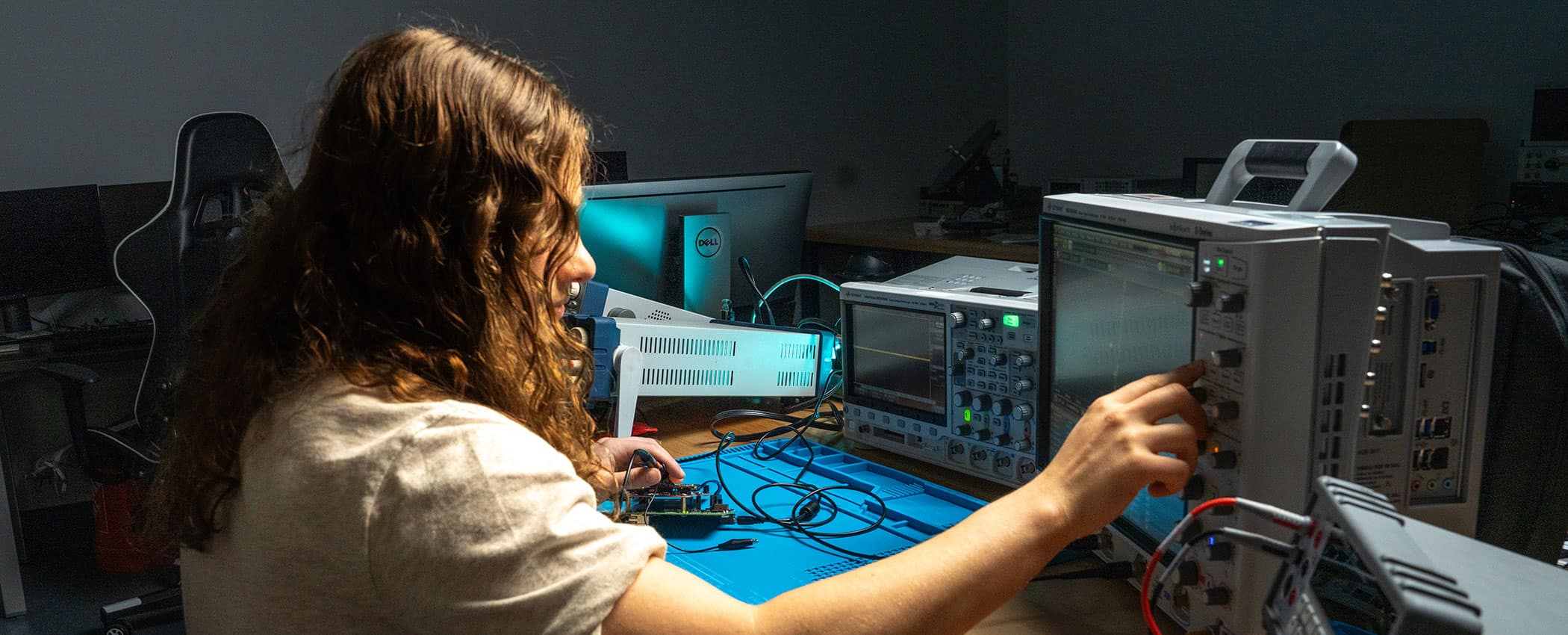
Master of Science in
Computer Science
The Master of Science in Computer Science enhances cybersecurity careers in developing and maintaining secure networked systems.
About the Master of Science in Computer Science
Computer Science careers are on the rise in both public and private sectors worldwide, ranging in everything from research in artificial intelligence and machine learning to secure systems design to software development. A Master of Science in Computer Science from Embry‑Riddle prepares graduates to either begin or further advance their careers in the fields of technology and cybersecurity.
The Electrical Engineering and Computer Science’s (EECS) Industry Advisory Board ensures that curriculum and research activities are aligned with what’s going on in the software industry. The accelerated program is a cutting-edge degree in a dynamic, growing field.
Student Learning Outcomes
What you will learn while pursuing a Computer Science degree:
- Apply fundamental computer science professional practices to analyze, design and implement systems.
- Apply knowledge of advanced topics in cybersecurity engineering and in computer science.
- Communicate effectively on issues pertaining to computer science and cybersecurity.
Computer Science Career Opportunities
Careers and Employers
Computer Science master's graduates often secure positions such as:
- AI researchers
- Computer scientists
- Cybersecurity consultants
- Cybersecurity engineers
- Digital forensics investigators
- Machine learning engineers
- Software engineers
Computer Science Salary Information
As of 2023, graduates with a degree in Computer Science receive competitive salaries, with an average income of $112,000 annually.
DETAILS
About Computer Science at the Daytona Beach, FL Campus
About Computer Science at the Daytona Beach Campus
Housed in the Electrical Engineering and Computer Science Department in the College of Engineering, the Master of Science in Computer Science prepares students to address challenges in the development of algorithms and data structures as well as maintaining secure operations and cybersecurity policy.
The Daytona Beach Campus is home to the Cybersecurity Engineering Laboratory (CybEL), a Real-Time Systems Laboratory, a Digital Systems Laboratory and a Software Development Laboratory, all of which offer students systems design and hands-on experience as it relates to cybersecurity attacks and corresponding mitigations, as well as software development and programming.
Tracks/Specialties and/or Certificates
Computer Science graduates may select one of two areas of concentration:
- Computer Science: 9 credits
- Cybersecurity Engineering: 9 credits
Computer Science Information
- Credits: 30
- Mode of Study: In-Person
- Thesis: Thesis & Graduate Research Project Options
Helpful Links
- Tour our Daytona Beach Campus
- Discover the Department's Faculty
- Explore the Fields of Study: Engineering & Computer & Technology & Security, Intelligence and Safety
- Find Related Clubs & Organizations
Student Learning Outcomes
Students will:
- Have an ability to apply fundamental computer science professional practices to analyze, design, and implement security-critical systems.
- Have an ability to apply knowledge of advanced topics in cybersecurity engineering and/or computer science.
- Have an ability to communicate effectively on issues pertaining to computer science and/or cybersecurity.
Degree Requirements
The Master of Science in Computer Science degree is granted to students who complete the coursework described below. The program consists of nine hours of core courses, nine hours of Area of Concentration courses, and nine hours of open electives for the Graduate Research Project Option or six hours of open electives for the Thesis Option.
Program Core Requirements
| CS 529 | Computer Security | 3 |
| SE 530 | Software Requirements Engineering | 3 |
| SYS 505 | System Safety and Certification | 3 |
| Total Credits | 9 | |
Area of Concentration
Students may choose one of the two Areas of Concentration as shown below.
Computer Science
| CS 555 | Artificial Intelligence | 3 |
| CS 600 | Advanced Algorithms | 3 |
| DS 615 | Data Modeling | 3 |
| Total Credits | 9 | |
Cybersecurity Engineering
| CS 527 | System Exploitation and Penetration Testing | 3 |
| CS 532 | Software Security Assessment | 3 |
| CS 538 | Applied Cryptography | 3 |
| Total Credits | 9 | |
Students may choose the Graduate Research Project or Thesis option, as shown below.
Graduate Research Project Option
| Program Core | 9 | |
| Area of Concentration | 9 | |
| Open Electives | 9 | |
| CS 690 | Graduate Research Project | 3 |
| Total Credits | 30 | |
Thesis Option
| Program Core | 9 | |
| Area of Concentration | 9 | |
| Open Electives | 6 | |
| CS 700 | Graduate Thesis | 6 |
| Total Credits | 30 | |
Get Started Now:
Summary
30 Credits
Estimate your tuition by using the Tuition Calculator
View Financial Aid Information
Learn about our General Education
Find out about transferring credits to this degree
Learn more about our Veterans & Military benefits
View our Academic Calendar




